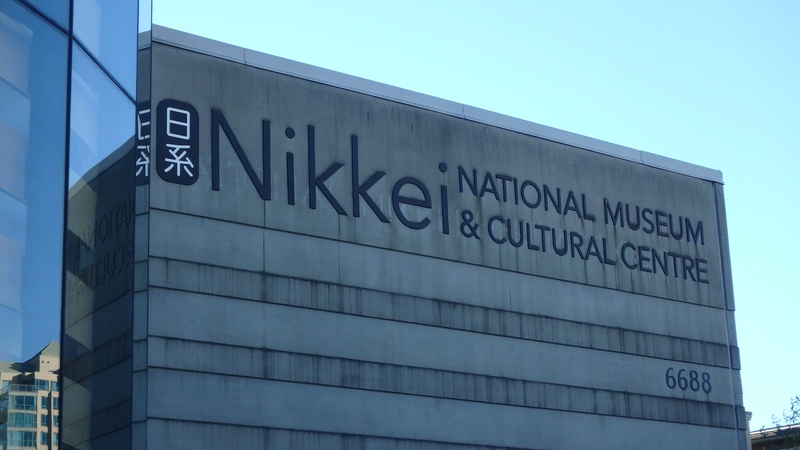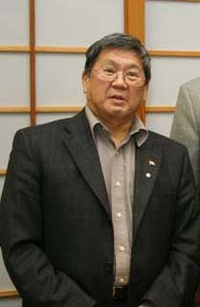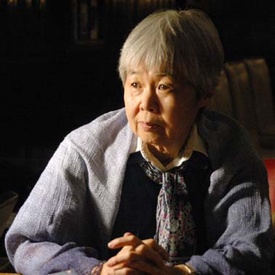When I got a “No comment,” response from Karah Goshinmon Foster, Executive Director, Nikkei National Museum and Cultural Centre (NNMCC), speaking on behalf of the Board of Directors when asked to explain the rationale for changing the name from Japanese Canadian Museum to Nikkei National Museum, it prompted me to dig deeper into the significance of how we name ourselves. The responses were quite revealing, prompting me to write the following:
Dear NNMCC Board of Directors,
Getting this response to a fair question from arguably our most important Japanese Canadian institution was surprising, prompting me to explore further about how we self-identify as Japanese Canadian, Canadians of Japanese descent, Canadian, Asian, East Asian, Canadian Nikkei or Nikkei. Does it even matter? Wearing my best school teacher hat, I delve deeper into this issue.
Here is a piece of my personal journey into this issue.
* * * * *
Are any of these terms more correct than others and what the heck does Nikkei even mean? And, no, as I often need to explain, we’re not talking about the Japanese stock exchange.
We are talking about Nikkei people - Japanese emigrants and their descendants who have created communities throughout the world. The key point for many who favour the Japanese Canadian label is that there should be a country designation to distinguish a Nikkei from Brasil, for example, from one who was born and lives in Canada.
“Nikkei” is an umbrella term that is not specific to any one nation. When I lived in Japan, many Japanese told me, “You are not Japanese.” I accept that my connection is a blood/DNA one and not really complete because of the lack of a cultural-linguistic connection that a Japanese education would have given me. So, no, I am not a Japanese National. I am “gaijin” (a foreigner) in Japan. I accept that.
However, hearing the word “Nikkei” in Canada where I was born, educated and work, losing that “Canadian” somehow infers that I don’t belong. I take some offence to being forced to rebrand myself with a term that very few JCs actually know.
To get some clarification on these descriptions, I ask Japanese scholar, Professor Masumi Izumi, Ph.D, Fulbright Scholar, 2004-2005, Professor, Faculty of Global and Regional Studies at Doshisha University in Kyoto and author of The Rise and Fall of America’s Concentration Camp Law (Temple University Press, 2020) and one of Japan’s foremost experts on the Japanese Canadian community. I asked her: “What does Nikkei mean?”
She explains the distinction: “Nikkei means ‘people of Japanese descent’ and usually the word refers to the ethnic Japanese people living or born outside Japan. The term ‘Japanese Canadian’ is ‘Nikkei Kanada Jin’ in Japanese. Nikkei is a generic term for anyone who is ethnic Japanese but not Japanese in Japan. So there are ‘Nikkei America Jin (Japanese Americans)’ and ‘Nikkei Burajiru Jin (Japanese Brazilians),’ etc.”
So where did the “Canadian” in Japanese Canadian go then and, importantly, why, replace it with the ambiguous, “Nikkei”?
Redress leader, Art Miki, 84, attended the Japanese Canadian Museum opening on September 22, 2000, the anniversary of the historic 1988 Redress agreement.
Reaching out to Miki in Winnipeg, the former president of the NAJC, recalls:
“The money ($3 million) came from the Japanese Canadian Redress Foundation for the purchase of the Burnaby, BC property where Nikkei Place sits that includes the museum and the cultural centre. When the funds were given, it was for the National Japanese Canadian Museum because of the interest of the Foundation in its mandate in preserving and ensuring that our history in Canada would not be forgotten.
Miki continues: “I understand there is some controversy in using Nikkei instead of Japanese Canadian. I tend to use Japanese Canadian over Nikkei because it is much clearer to people I might be speaking to. If someone doesn’t know the meaning of Nikkei it may be confusing as it applies to any persons of Japanese ancestry living outside of Japan whether they live in Brazil, US, etc. Is it becoming more confusing?”
* * * * *
For some further background then I consulted the Discover Nikkei website: As a project of the Japanese American National Museum in Los Angeles, California, it states that there are 2.6 to 3 million people of Japanese descent living throughout the world, most living in the Americas, where they have established families and communities and in the process transformed themselves and the societies where they have settled.
So, what about Canada’s own JC newspaper the Nikkei Voice (NV) that was born out of the Redress movement and originally published by the National Association of Japanese Canadians (NAJC) and now by the Japanese Canadian Cultural Centre in Toronto. Seeing Nikkei in the banner of that newspaper was likely the first time I had ever seen the word. (The Toronto paper describes itself as “THE JAPANESE CANADIAN NATIONAL NEWSPAPER” (their caps).)
From Toronto poet/author Joy Kogawa (Obasan, et al), 85, a founding member of the NV, Kogawa was among the community leaders that saw and acted on the need for a national newspaper, Kogawa recalls: “Tom Shoyama, Wes Fujiwara, Roger Obata, and I met with Tom at his hotel one evening to discuss the need for a national newspaper to support the National Association of Japanese Canadians (NAJC). This was at a time where there were two papers, The New Canadian and The Continental Times under Harry Taba, neither of which supported the NAJC. Tom, Wes and Roger each pledged $1000 and Ken Kishibe was the first editor and he named it Nikkei Voice.”
Toronto Speaks...
Frank Moritsugu, 97, veteran journalist (New Canadian writer in Kaslo, BC) and WWII veteran, says: “My immediate thought is that ‘Japanese Canadian’ is for other non-JC people to know exactly what we are. While ‘Nikkei’ is a Japanese language term that most of us JCs would understand (and if not, can have it explained by other JCs) - but too nihongo for most non-JCers.”
Gary Kawaguchi, president, and James Heron, executive director, Toronto JCCC, concur on the following: “The question is further complicated by our efforts to welcome and engage new immigrant Japanese into the JCCC. While it will change with their children, those new immigrants would not likely see themselves as Japanese Canadian or Nikkei. They would see themselves as Japanese.
“The only other issue with the term ‘Nikkei’ is that, unless you are Nikkei or have an understanding of Japanese, it may not be understood. This can be an issue when reaching out with messages to the broader public. The Centre then, has tried to use the terms in a situationally appropriate manner in order not to alienate any of our constituents and make all feel included.”
Toronto Nisei Sid Ikeda, says: “I like Japanese Canadian but since Japanese people are immigrating to Canada from Japan, Nikkei represents everyone.”
Adding another dimension to this discussion, Toronto photographer and Shin Ijusha,’ Yosh Inouye, says: “Viewed from inside of Japan, Nikkei is any Japanese descendants out of Japan, not including ‘Shin Ijusha.’ From outside of Japan, Nikkei includes Shin Ijusha. Because we are all seen as the same group. However, Shin Ijusha do not think they are Japanese Canadian, yet. They still think they are Japanese living in Canada.”
© 2020 Norm Ibuki








